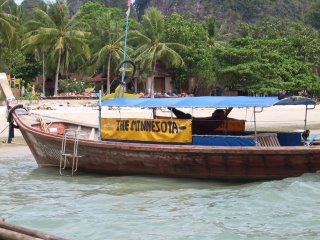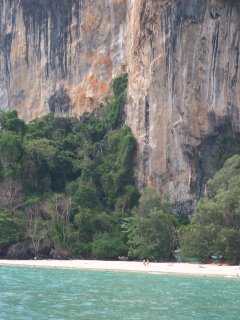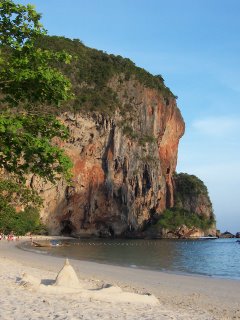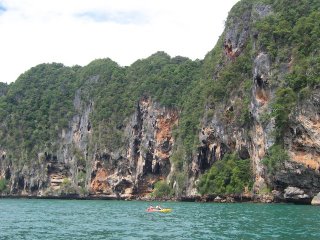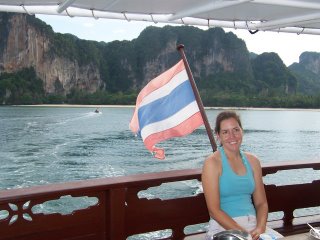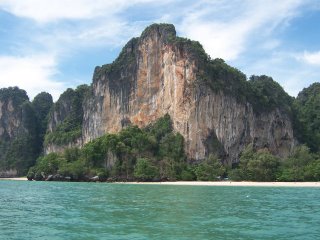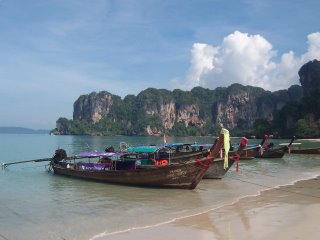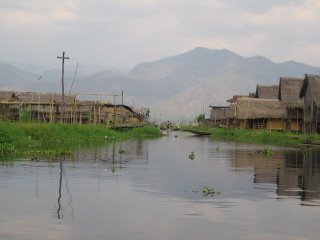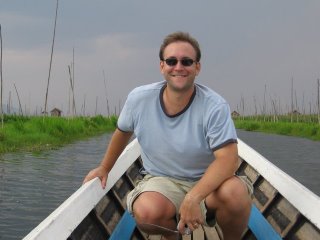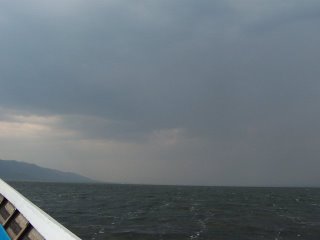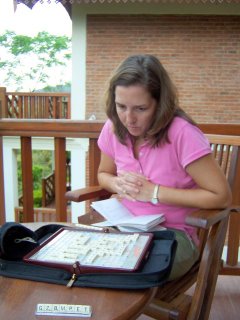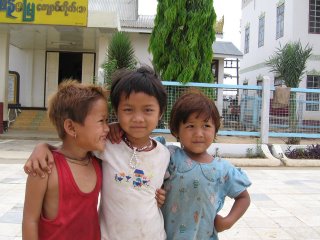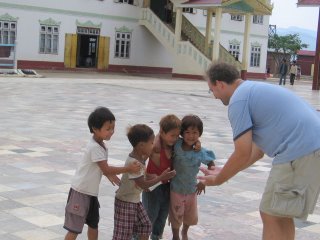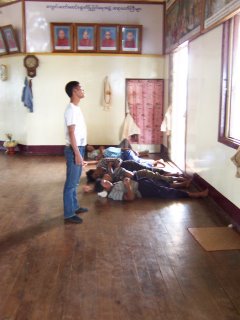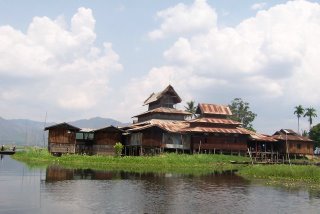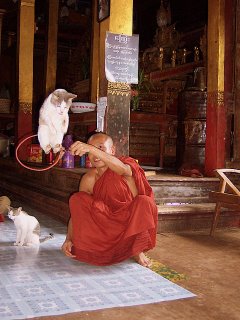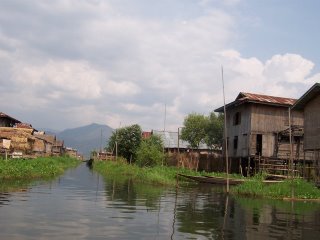So
this article is written by a guy I went to SIPA with. Raffi was just entering the International Reporting Project when we were getting ready to leave for Laos, so we got to see him in DC as well.
Looks like he's doing well for himself. New York Times Op-Ed page is not too shabby.
Blowback in AfricaBy RAFFI KHATCHADOURIAN
Published: April 28, 2006
EVER since Chad gained independence 46 years ago, it has been a world-class model of political dysfunction. In the 1970's, Chad's president, François Tombalbaye, compelled civil servants to renounce Western customs, undergo a tribal initiation rite known as yondo and profess belief in a nationalist creed he called Chaditude. He was executed in 1975. In the 1980's, a rebel leader named Hissène Habré led an army to the presidential palace and seized power. He became known as the "African Pinochet" and murderously pursued opponents for nearly a decade.
In 1990, Mr. Habré was chased out by an armed faction led by Chad's current president, Idriss Déby. Now Mr. Déby is facing his own rebellion.
Americans might dismiss this numbing cycle of coups as esoteric history belonging to a troubled and distant country. They shouldn't. The C.I.A. armed Mr. Habré for years, and since 2003, the United States military has been training and equipping Mr. Déby's army, making his fight to stay in office our fight, too.
Last year, Chad took part in a vast, international military exercise organized by the United States — the largest exercise of its kind in Africa since World War II, according to the Defense Department. This summer, American forces will continue to advise Chadian soldiers, and Congress is expected to allocate $500 million for a five-year program to train and equip several Saharan armies — including Mr. Déby's.
The military hopes these initiatives will help contain the threat of terrorism by bringing order to the Great Desert and its borderlands. For centuries, the Sahara has been a lawless realm, and with millions of Muslims living across the region in isolated communities, counterterrorism officials fear that Islamic militants may seek sanctuary there.
But dispensing military aid to Chad now — with Mr. Déby fighting hundreds of rebels backed by Sudan — seems reckless. It puts American military equipment and expertise in the hands of a desperate dictator. Worse still, it risks pouring additional fuel into the human furnace of Darfur, and it may well come to impede the careful diplomatic work required to solve that crisis.
So far, American officials have made much of Sudanese assistance to the rebels, framing the recent conflict in Chad as an outgrowth of the tragedy in Darfur. There is some truth to this. But the violence in Chad also has its own political narrative. During his 16 years in power, Mr. Déby has ruled Chad brutally. His security forces have committed torture, rapes, summary executions and mass killings.
Mr. Déby is a member of the Zaghawa — a northern tribe making up roughly 5 percent of Chad's population — and last year the State Department described his regime as a Zaghawa oligarchy shielded by a security and intelligence apparatus that violates human rights with impunity. In 2004, Mr. Déby altered Chad's Constitution to grant himself another term in office. Elections are scheduled for next Wednesday. There is little likelihood they will be fair.
Only one compelling argument exists for giving Chad military aid, and it follows from the logic of lesser evils. Many of the refugees fleeing Darfur are Zaghawa, and Mr. Déby has taken them in. If his regime collapses, tens of thousands of people will once again be at the mercy of Sudan's janjaweed marauders, and the genocide may spread.
This argument, though, is complicated by another unsettling development. In recent months, scores of Chadian soldiers have defected to the rebel militias. If the defections continue, they raise the horrific possibility that American military equipment and expertise could end up going to men aligned with the janjaweed. In that case, our military assistance to Chad, far from containing political anarchy, would only add to it.
Raffi Khatchadourian traveled to Chad in 2005 for the International Reporting Project at Johns Hopkins University's School of Advanced International Studies.


